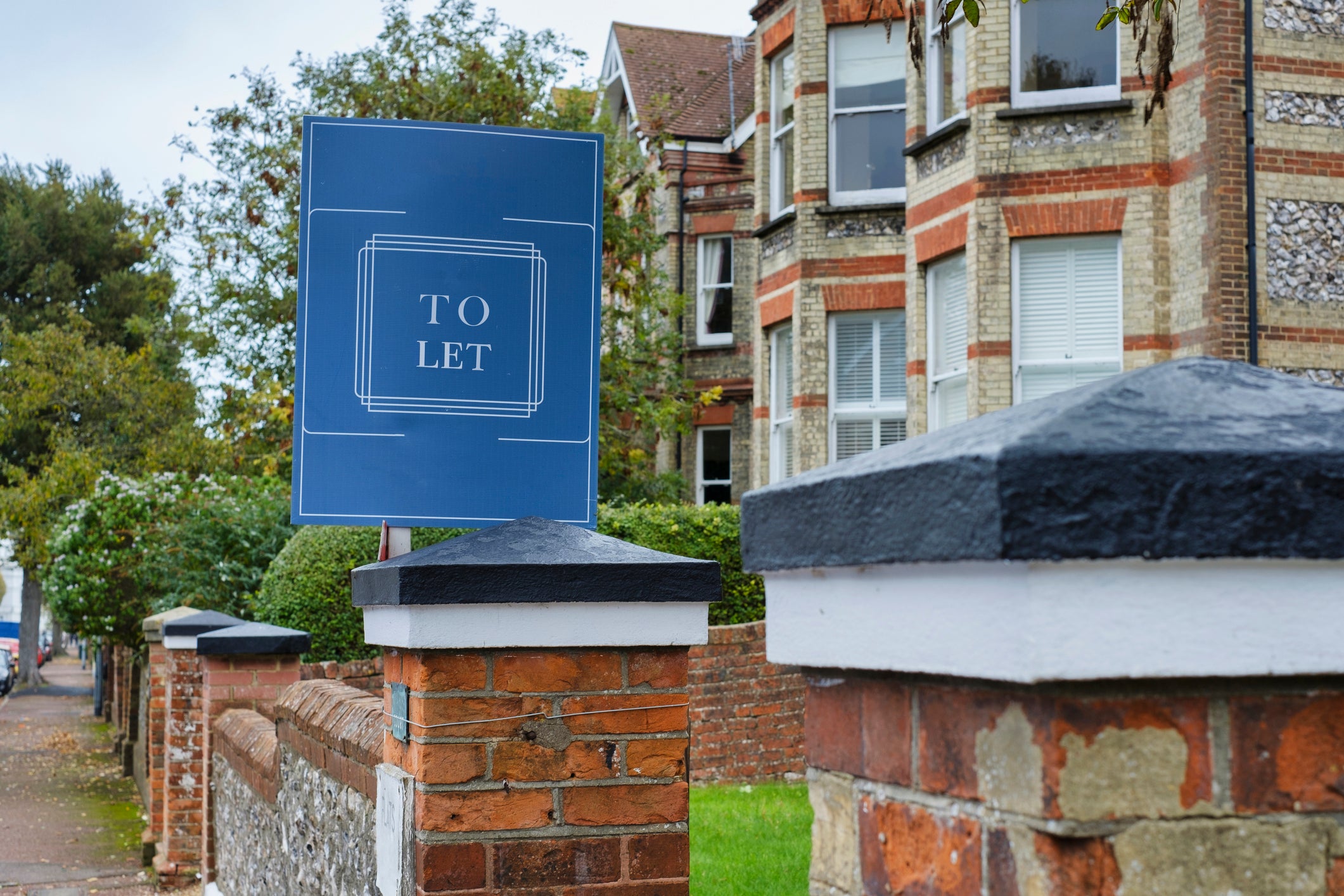Tenants won’t always have it easier, even as renting becomes cheaper than buying
Today’s property market may have lost its grip on reality, but be sure of your long-term numbers before turning your back on it

At first glance, news that it’s cheaper to rent across large swathes of the country is a bit of a relief.
After all, being able to tell twitchy family members that you’re actually saving more than £70 a month by doing just that could silence a good chunk of those whose journey onto the property ladder sounds like it was a bit of a walk in the park.
You’ve got the pandemic to thank for it. In March 2020, that now-infamous turning point, those with a 10 per cent deposit were looking at property prices and corresponding mortgage costs that came in at least £100 cheaper every month than the average rent, according to estate agent Hamptons.
However, these days, despite rents overall rising by more than 7 per cent over the past 12 months, strong house price growth and increases in higher loan-to-value (LTV) mortgage rates have added to the cost of buying and owning a home.
As a result, in May it was £71 a month – around 7 per cent – cheaper for a typical would-be first-time buyer with a 10 per cent deposit to rent a home than it was to buy. They would have spent a monthly average of £1,054 on rent compared with £1,125 on mortgage repayments.
The largest shift since the pandemic started has been in London, which has bucked the national trend with a fall in rents as people have moved away, widening the cost gap further between tenants and buyers.
The three northern regions (the northeast, northwest, Yorkshire and Humber) and Scotland were the only places in the UK where it was cheaper to buy last month than rent.
For would-be buyers with just a 5 per cent deposit, renting becomes even cheaper than buying on a monthly basis, not least because of the increase in interest rates on 95 per cent LTV mortgages. A buyer putting down a 5 per cent deposit will, on average, spend £195 a month (or 19 per cent) more than if they had carried on renting.
So far so good if you’re sitting in your rented home watching purchase prices race away from you with some disquiet.
But the latest figures, yet more evidence of those bubble-based valuations, are more of a blip in a long-term trend than a new, post-pandemic normal.
The last time renting was cheaper than buying was, briefly, back in 2014. And the chances are that as mortgages come down, the pendulum will swing back by next year, Hamptons believes, even with rising house prices.
If that’s the default, those who nag you about paying someone else’s mortgage may have a point.
In the months before the pandemic turned the world on its head, the Intermediary Mortgage Lenders Association was reporting that someone who borrowed to buy the average property could be more than £350,000 better off than the average private renter over the following 30 years if house prices had remained static.
The monthly outgoings alone were calculated at almost £134,000 lower over the life of the mortgage than the monthly cost of renting. Plus a buyer will be left with a valuable property at the end of it.
There’s another problem, too. The nation’s property preoccupation means that as a society we don’t expect to still be paying those rental or indeed mortgage costs after we stop earning.
Sure, a third of today’s renters will do so for life, and those who do get on the first rung, perhaps with one of a growing number of 30- or even 40-year mortgages, are already well into their thirties when they do so.
But individuals, the financial services world and government all seem unprepared to take that into account when it comes to retirement funding.
At best, there’s an assumption that basic housing costs will be dropping as we finish off paying the mortgage, rather than taking into account the possibility of sustained or even rising rents.
We’re regularly told that we’ll need between 50 per cent and 75 per cent of our current income in retirement, with the drop based on the expectation that we will have finished paying off a mortgage.
Widely reported figures from Which? last month, for example, revealed that just covering the basics in old age would require savings worth more than £77,000 for a single person, after the state pension is taken into account.
This, the consumer group worked out, would only cover food and drink (no eating out), essential transport, utility bills, insurance, household goods and clothing, plus basic housing payments.
But those housing payments were only calculated at £2,592, including council tax, based on what the typical retiree spends now – generations that benefited from low relative house prices during their working lives.
The average rent in the UK, aside from anything else, was £997 a month for a new tenancy last month, according to the HomeLet Rental Index. That’s £11,964 a year – a significantly larger amount to try to pull from long-term savings and investments.
While it makes sense to take a step back from a rampant and unstable housing market right now, if you’re turning your back on it permanently, you won’t be free of the need to save, it will just need to be stashed for later on.
Subscribe to Independent Premium to bookmark this article
Want to bookmark your favourite articles and stories to read or reference later? Start your Independent Premium subscription today.

Join our commenting forum
Join thought-provoking conversations, follow other Independent readers and see their replies